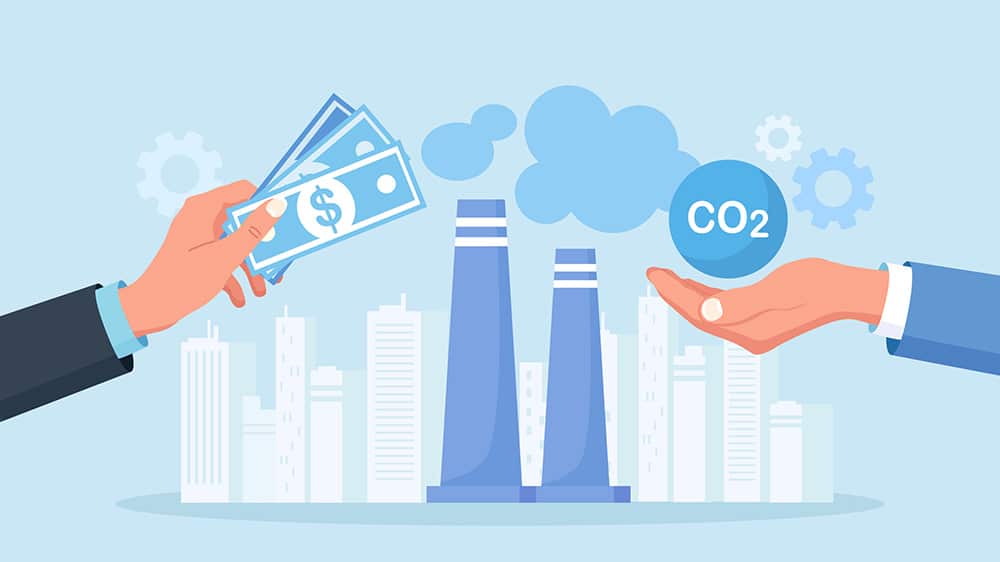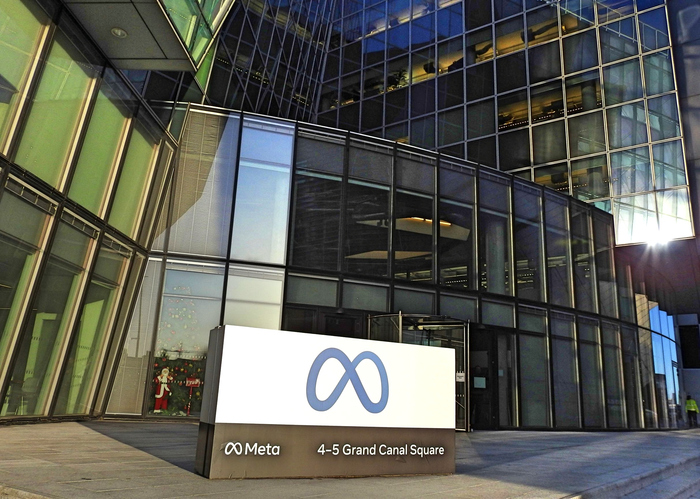Carbon Offset Scams: What Are They, How-to Report
Carbon offset scams are on the rise, exploiting the growing demand for sustainable solutions. Learn about the tactics used by companies and individuals, the risks to investors, and how to anonymously report these frauds under various whistleblower award programs.
May 14, 2025

This information is provided for educational purposes only by Kohn, Kohn & Colapinto and does not constitute legal advice. No attorney-client relationship is created by accessing this content. Laws and regulations may change, and this material may not reflect the most current legal developments. If you believe you have a whistleblower claim, consult a qualified attorney to discuss your specific circumstances.
Carbon offsets are credits for emissions reductions purchased from a project outside a company. These credits are then used to reduce the company’s emissions footprint, without changing the emissions they produce from standard business operation.
If offsets are used, the company must disclose the source of the offsets, a description and location of the underlying projects, any registries or authentication of the offsets, and the cost of the offsets. In other words, they must tell investors how they are reducing emissions.
Critics argue that there are massive issues with offset verification, accuracy, and quality, and that there needs to be greater transparency as to how companies are utilizing carbon credits to meet climate goals. This is where carbon offset scams or frauds come into play.
Continue reading to learn about carbon offset scams and what you can do to report such schemes under the SEC Whistleblower Program or the CFTC Whistleblower Program. Large monetary awards and protection from retaliation may be available for eligible whistleblowers.
“Information from whistleblowers advances the Commission’s enforcement mission and, in turn, further builds integrity and trust in the carbon markets by rooting out fraud and manipulation.” – Rostin Behnam, CFTC’s 15th Chairman (Press Release)
What Are Carbon Offset Credits?
A carbon offset credit represents a measurable reduction or removal of greenhouse gas emissions. These credits can be earned through various means, such as:
- Carbon Avoidance: Projects that prevent emissions, like avoiding the burning of fossil fuels or deforestation.
- Carbon Reduction: Initiatives that lower emissions, such as improving energy efficiency or adopting cleaner technologies.
- Carbon Removal: Actions that extract carbon dioxide from the atmosphere, such as planting trees or using direct air capture technologies.
While some companies opt out of purchasing carbon offsets, it’s often more cost-effective to buy offsets than to invest in direct emissions reduction measures.
Trading Carbon Credits
Once earned, companies can trade carbon credits through various means, including buying and selling them through carbon markets. In such markets, credits are traded like commodities – their price fluctuates according to supply and demand. Companies can purchase credits to offset their own emissions, demonstrating a commitment to climate action and potentially meeting regulatory requirements. This process essentially allows organizations to support projects that reduce or remove greenhouse gases, contributing to global efforts to mitigate climate change.
Carbon Markets
Carbon credits are traded on two types of markets: the compliance carbon market and the voluntary carbon market, the latter being more susceptible to fraud and greenwashing.
Here is a broader overview of both markets:
- Compliance carbon market: this market is regulated and the entities within this market are required to purchase carbon credits to meet specific emission reduction targets. These markets put a cap on the total amount of emissions permitted. This is considered a “cap-and-trade” system, where entities are allowed to sell permits to trade emissions. Examples of this carbon market include the California Cap-and-Trade and Regional Greenhouse Gas Initiative (RGGI), or in Europe, the European Union Emissions Trading System (ETS).
- Voluntary carbon market: in this market, companies and individuals can purchase carbon credits voluntarily to offset their greenhouse gas emissions. Credits are generated from projects aimed at reducing or removing carbon emissions (such as carbon dioxide) from the atmosphere. Examples might include the Verra’s Verified Carbon Standard (VCS), American Carbon Registry (ACR), or the Climate Action Reserve (CAR).
Both markets play a critical role in addressing climate change. However, these markets and credits are often exploited through various scams and frauds, which regulators such as the Securities and Exchange Commission (SEC) and the Commodities Futures Trading Commission (CFTC) are paying closer attention to. Continue reading to learn more about these frauds and scams.
Types of Carbon Offset Scams
Carbon offset scams exploit the increased demand for climate solutions by offering false or exaggerated claims about carbon reduction projects. These scams often involve selling carbon credits that don’t represent real emissions reductions or that overstate their impact.
Here are some common tactics used in carbon offset scams:
- Ghost / phantom credits: these are credits that claim to represent carbon reductions that never actually happened. They might be based on projects that were never implemented.
- Wash trading: an illegal type of trading where a trader buys and sells a carbon credit to mislead the market about the level of trading volume for the commodity.
- Double counting: this occurs when the same carbon reduction is claimed by multiple parties, inflating the total amount of emissions reduced.
- Overstated impact: some projects may exaggerate the amount of carbon they can offset, leading to misleading claims.
- Lack of transparency: scammers may avoid providing clear information about their projects, making it difficult to verify their claims.
- Weak verification processes: some projects may rely on inadequate verification processes, allowing for fraudulent activities to go undetected.
- Greenwashing: the use of misleading marketing tactics a company uses to portray themselves as environmentally responsible, even if their carbon offset claims are unfounded.
- Manipulation of Tokenized Carbon Markets: opportunities for fraud occur when carbon credits are tokenized into the blockchain.
Essentially, carbon offsets provide a mechanism for people, organizations and businesses to consider themselves carbon neutral or “net zero.” And thus, scam the carbon market to improve their environmental, social and governance (ESG) scores to attract ESG-minded investors.
Investors Beware
The primary risk for investors in companies involved in carbon offset fraud is reputational damage. If a company is found to have engaged in fraudulent practices, it can lead to significant negative publicity, loss of consumer trust, and potential legal consequences. This can negatively impact the company’s brand value, customer base, and overall financial performance.
Additionally, investors who have purchased carbon credits from fraudulent companies may find that their investments are worthless, as the underlying carbon reductions or removals may not have actually occurred. This can result in financial losses and undermine the credibility of the company’s sustainability efforts.
Reporting Concerns: U.S. Whistleblower Programs
Whistleblowers can anonymously report their concerns about carbon offset scams to regulators, and potentially receive an award and protection for their information. There are two effective whistleblower programs that insiders can use, which are:
- CFTC Whistleblower Program: The CFTC has specific authority over carbon markets and has actively encouraged whistleblowers to report fraud and manipulation. This program incentivizes individuals with original information about a potential violation of the Commodity Exchange Act (CEA) to voluntarily report their concerns.In exchange, whistleblowers may be eligible to receive a portion of the monetary sanctions collected in a successful enforcement action, which is between 10% and 30% of those sanctions exceeding $1 million.
- SEC Whistleblower Program: If the scam involves securities fraud, such as potential false claims about carbon offset activity by issuers of securities, the SEC would be the appropriate agency. Like the CFTC Whistleblower Program, the SEC Whistleblower Program also incentivizes individuals with specific, timely and credible information about a potential violation of the Securities Exchange Act (Exchange Act) to voluntarily report their concerns.In exchange, whistleblowers may be eligible to receive a portion of the monetary sanctions collected in a successful enforcement action, which is between 10% and 30% of those sanctions exceeding $1 million.
- Environmental Protection Agency (EPA): Whistleblowers may also choose to report their concerns to the Environmental Protection Agency (EPA), which oversees environmental regulations and may be able to investigate claims of fraudulent carbon offset projects. But these programs fall short of offering protection.
These regulatory bodies are increasingly scrutinizing carbon offset markets, and companies involved in fraudulent activities may face severe penalties, including fines and legal actions. This is why whistleblowers are essential, as they are often the first to become aware of such fraud, and they have access to important "high quality" information that can lead to enforcement.
Anti-Retaliation Provisions
Both the CFTC and SEC Whistleblower Programs were created under the Dodd-Frank Wall Street Reform and Consumer Protection Act of 2010, which offers protection against retaliation.
An employer may not discharge, demote, suspend, harass, or in any way discriminate against an employee who reported potential securities law violations to the CFTC or SEC.
Individuals who have faced retaliation may also sue their employer in federal court to gain double back pay (with interest), reinstatement, and attorneys' fees.
Reporting Carbon Offset Scams or Fraud
Whether you're reporting carbon offset scams under the CFTC Whistleblower Program or the SEC Whistleblower Program, the process is roughly the same (see chart below).

From their inception in 2010 until the end of 2023, the CFTC Whistleblower Program has awarded approximately $380 million to whistleblowers, and the SEC Whistleblower Program has awarded over $2 billion to whistleblowers, which points to their major success.
Important considerations for whistleblowers before blowing the whistle:
- Gather evidence: collect as much evidence as possible, such as documents, emails, or recordings, to support your claims.
- Consult with an attorney: an attorney can provide legal advice and help protect your rights as a whistleblower. This is required if you choose to file anonymously or for an award.
- Be prepared for retaliation: whistleblowers may face retaliation from their employers or others involved in the scam. It’s important to be prepared for this possibility.
By coming forward and reporting carbon offset scams, whistleblowers can help protect the environment and ensure that carbon markets operate fairly and transparently. However, they should have the best evidence and support to ensure their case gets the right attention.
Recent Carbon Offset Fraud Cases
Kenneth Newcombe, CQC Impact Investors LLC (CQC), Jason Steele (2024)
The Commodity Futures Trading Commission (CFTC) has charged Kenneth Newcombe, former CEO of a carbon credit project developer, with fraud and false reporting related to the issuance and sale of voluntary carbon credits. The CFTC also charged CQC Impact Investors LLC and its former COO, Jason Steele, with fraudulent activities concerning carbon credit projects in sub-Saharan Africa, Asia, and Central America.
The CFTC alleges that Newcombe and CQC fraudulently reported false and misleading information to obtain carbon credits far beyond what they were entitled to receive. The CFTC’s actions demonstrate its commitment to ensuring the integrity of the voluntary carbon market and protecting investors from fraud.
The CFTC has ordered CQC to pay a $1 million civil monetary penalty and to cancel or retire a sufficient number of voluntary carbon credits to address the fraudulent conduct.
Get Legal Assistance
Led by former SEC acting chair and commissioner Allison Herren Lee, former SEC Enforcement Attorney Andrew Feller, and renowned whistleblower attorney Stephen M. Kohn, our team has been shaping the landscape of whistleblower protection for over 35 years. Contact us today for a free case evaluation. There’s no fee unless we get an award for you.
Our Firm’s Cases

Environment & Human Rights Violations Exposed
Oil industry’s environmental crimes and cover-up in Colombia have been exposed. Whistleblower Andrés Olarte Peña, with the support of his attorneys Kohn, Kohn & Colapinto and the damning evidence compiled in the Iguana Papers, is calling for an investigation into Ecopetrol and its executives by the Colombian government and the U.S. Securities and Exchange Commission.

$30 Million Award
Protecting the confidentiality of Wall Street whistleblowers is among the most important breakthroughs in federal whistleblower law. Under the Dodd-Frank Act, whistleblowers can file anonymous cases, and everything about their case, including who they sued, remains secret.

$13.5 Million Award
Our firm represented an anonymous whistleblower, who on May 17, 2021, received a whistleblower award of almost $13.5 million. The SEC has issued more than $31 million in whistleblower awards related to this case.
![Reporting Recordkeeping Failures To The Sec [2025 Guide]](https://kkc.com/wp-content/uploads/2025/01/Recordkeeping-Failures.jpg)




